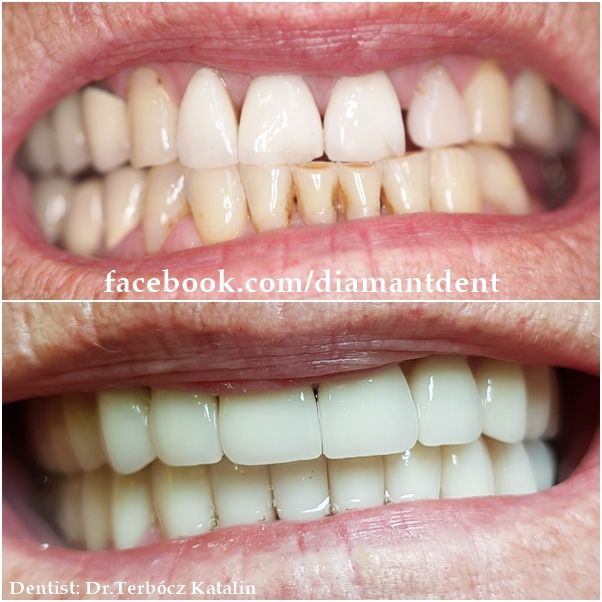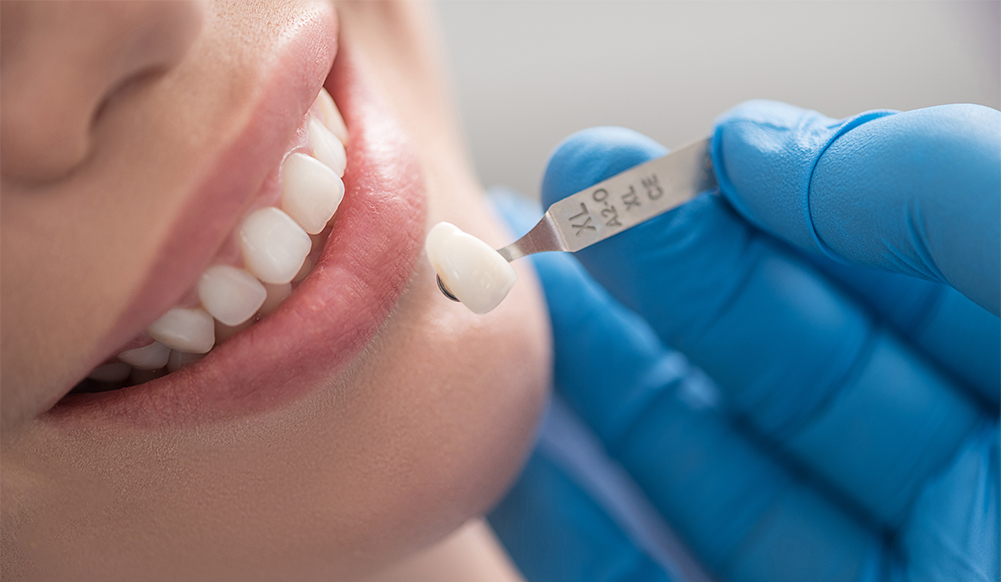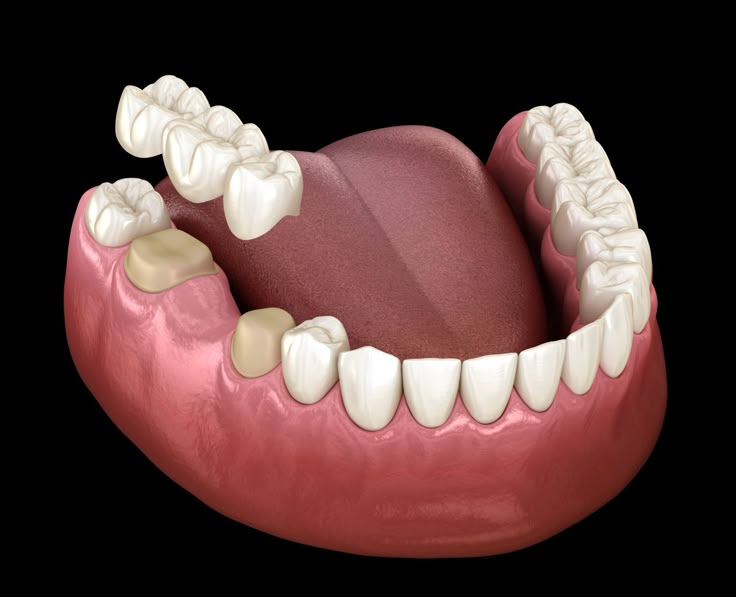At our Dental clinic, we believe that a confident smile is the key to making a lasting impression. Why Choose Cosmetic Dentistry? Your smile is one of your most valuable assets. Cosmetic dentistry goes beyond just improving the appearance of your teeth—it enhances your overall confidence and quality of life. From subtle changes to dramatic transformations, our services are designed to address a wide range of dental concerns, including: Teeth Whitening: Brighten your smile with our professional-grade whitening treatments that remove stains and discoloration. Porcelain Veneers: Correct chips, gaps, and misaligned teeth with custom-made veneers that look and feel natural. Dental Bonding: Repair minor imperfections like chips or cracks quickly and effectively. What Sets Us Apart? Experienced Team: Our cosmetic dentists are highly trained and stay up-to-date with the latest advancements in dental technology. Personalized Approach: We take the time to understand your goals and create a customized treatment plan that fits your lifestyle. Comfortable Environment: Our Texas office is designed to make you feel at ease, with modern amenities and a friendly staff. Your Smile Journey Starts Here We understand that every smile is unique, and we’re here to help you achieve the results you’ve always wanted. Whether you’re preparing for a special event or simply want to feel more confident in your everyday life, our cosmetic dentistry services can make a world of difference. Call us at 281-672-7178, Mail us at : myteethdentaltx@gmail.com or visit myteethdentaltx.com to schedule your appointment. Find us at: 1199 blossom street Webstar, TX 77598.
Benefits of Dental Bridges
The My Teeth Dental in Webstar is conveniently located near to the Lake Campus Hospital Complex and NASA Johnson Space center is the best dental office near you for any type of Dental problem . A dental bridge is a restorative dental procedure designed to replace one or more missing teeth by anchoring artificial teeth (pontics) to adjacent natural teeth (abutments) using crowns. This solution helps restore functionality and aesthetics, ensuring a complete smile and improved oral health. Types of Dental Bridges. Traditional Bridge: This is the most common type, consisting of one or more pontics supported by crowns placed on the adjacent natural teeth. It is effective for replacing one or more consecutive missing teeth. Cantilever Bridge: Used when there is only one adjacent tooth available for support. It is anchored on one side, making it less stable than traditional bridges. Maryland Bridge: This type features a pontic with metal wings bonded to the back of the adjacent teeth. It is typically used for front teeth due to aesthetic considerations. Implant-Supported Bridge: This option uses dental implants as anchors instead of crowns on natural teeth. It provides greater stability and longevity, making it suitable for multiple missing teeth.
Emergency Dental Care in Texas: Quick Relief When You Need It Most
When a dental emergency strikes, knowing where to turn for prompt and reliable care is crucial. DEntal Emergency When a dental emergency strikes, knowing where to turn for prompt and reliable care is crucial. At our Dental Clinic , we specialize in emergency dental care in Texas, offering immediate relief for issues like severe toothaches, broken teeth, or knocked-out teeth. Our experienced team is equipped to handle dental emergencies in Texas with precision and compassion, ensuring you get the care you need when it matters most. Whether you’re dealing with a sudden injury or unbearable pain, we’re here to provide emergency dental services in Texas to restore your smile and peace of mind. Dental emergencies can happen at any time, often when you least expect them. From accidents to sudden infections, these situations require urgent attention to prevent further complications. We understand the urgency of these moments and prioritize quick, effective treatment. We know that dental emergencies can be stressful, which is why we focus on creating a calm and supportive environment for every patient. Our team takes the time to explain your treatment options and answer any questions you may have. With advanced technology and a compassionate staff, we ensure that your visit is as comfortable and efficient as possible. Call us at 281-672-7178, Mail us at : myteethdentaltx@gmail.com or visit myteethdentaltx.com to schedule your appointment. Find us at: 1199 blossom street Webstar, TX 77598.
Restore Your Smile with Dental Crowns
The My Teeth Dental in Webstar is conveniently located near to the Lake Campus Hospital Complex and NASA Johnson Space center is the best dental office near you for any type of Dental problem . we specialize in providing high-quality dental crowns that are designed to protect and strengthen your teeth while enhancing their appearance. Our experienced team uses advanced techniques and state-of-the-art technology to ensure precise and long-lasting results. Whether you need a crown for a cracked tooth, a large filling, or cosmetic improvement, we’ve got you covered. Dental crowns are a versatile restorative dentistry solution that can address a variety of dental issues. Made from durable materials like porcelain, ceramic, or metal, crowns are custom-designed to match the shape, size, and color of your natural teeth. Our team will guide you through the process, answering all your questions and addressing any concerns. Choosing the right dental clinic for your crowns is crucial for achieving the best results. At dental clnic s Dentist, we prioritize patient comfort and satisfaction. Our friendly and skilled team is dedicated to providing a stress-free experience, from your initial consultation to the final placement of your crown. We also offer flexible scheduling options to accommodate your busy lifestyle.
Transform Your Smile with Dental Veneers
Dental veneers are typically made from porcelain or composite resin and are carefully bonded to your natural teeth. Are Dental Veneers Right for You? If you’re considering dental veneers, consulting a qualified dentist is essential. They will evaluate your dental health, discuss your aesthetic goals, and recommend the best approach for your unique needs. Dental veneers are a fantastic way to enhance your smile and boost your confidence. With their natural look and durable nature, they provide a long-term solution for many dental imperfections. Consult your dentist today to see if dental veneers are right for you! Who Can Benefit from Dental Veneers? Dental veneers are suitable for individuals with: Discolored or stained teethChipped or broken teethGaps between teethIrregularly shaped or misaligned teeth What Are Dental Veneers? Dental veneers are typically made from porcelain or composite resin and are carefully bonded to your natural teeth. They are highly durable and mimic the natural shine of enamel, making them a popular choice for those seeking a long-lasting cosmetic dental solution. Benefits of Dental Veneers Natural Appearance: Veneers are crafted to match the shape, size, and color of your teeth, providing a seamless look. Stain Resistance: Porcelain veneers are resistant to stains, ensuring your smile stays brighter for longer. Durability: With proper care, veneers can last for over a decade. Minimal Tooth Alteration: Veneers require only a small amount of enamel removal compared to crowns.
Regain Your Smile with Our Denture and Partial Denture Services.
Dentures and partial dentures offer numerous benefits for individuals with missing teeth. Partial Dentures: Used when some natural teeth remain. They are designed to fill gaps and are attached to existing teeth using metal clasps or precision attachments. Implant-Supported Dentures: These combine traditional dentures with dental implants, offering improved stability and comfort. Benefits of DenturesEnhanced Appearance: Dentures restore facial structure by filling gaps, preventing sagging skin, and promoting a youthful look. Improved Speech: Missing teeth can impair speech clarity, but dentures can help resolve this. Caring for Your Dentures Proper care ensures your dentures remain in optimal condition and maintain oral health: Daily Cleaning: Clean dentures with a soft brush and mild soap or specialized denture cleaner. Soaking: Store dentures in water or denture solution overnight to keep them moist. Routine Dental Visits: Regular check-ups help ensure proper fit and identify any concerns. Handle with Care: Avoid dropping dentures to prevent cracks or damage. Easier Eating: Dentures improve chewing ability, allowing for a more diverse and nutritious diet. Boosted Confidence: Restoring a full smile enhances social interactions and self-esteem. Common Challenges and Solutions Older adults may face some challenges while adjusting to dentures. Common issues include: Initial Discomfort: Mild irritation or soreness is normal initially but typically subsides with time. Difficulty Eating or Speaking: Practice eating softer foods and speaking slowly to adjust gradually. Loose Fit: Over time, gums may change shape, requiring denture adjustments or replacements. Are Dentures Right for You? If you’re experiencing tooth loss and seeking an effective solution, dentures may be the answer. Consult with your dentist to explore options tailored to your oral health needs and lifestyle.
Effective Ways to Manage Dental Anxiety
Dental anxiety and dental phobia are common conditions where individuals experience fear, stress, or panic when visiting a dentist. Dental anxiety and dental phobia are common conditions where individuals experience fear, stress, or panic when visiting a dentist. While mild anxiety is normal, severe cases can prevent people from seeking necessary dental care, leading to serious oral health issues. Causes of Dental Anxiety Past traumatic experiences with dental procedures. Fear of pain or discomfort during treatments. Loss of control while sitting in the dental chair. Embarrassment about oral health conditions. Sensitivity to sounds, smells, or instruments used in dentistry. Managing Dental Anxiety ✔ Communicate with the dentist – Expressing fears can help the dentist adjust treatment accordingly.✔ Use relaxation techniques – Deep breathing, meditation, or listening to calming music can reduce stress. Sedation dentistry options – Mild sedatives, nitrous oxide, or IV sedation can make procedures more comfortable.✔ Gradual exposure – Visiting the clinic for simple check-ups before major treatments can build confidence.✔ Bring a support person – Having a trusted friend or family member can provide emotional reassurance. Overcoming dental anxiety is essential for maintaining good oral health. Dentists today use advanced, pain-free techniques to ensure a comfortable experience for every patient. 😊 The My Teeth Dental in Webstar is conveniently located near to the Lake Campus Hospital Complex and NASA Johnson Space center is the best dental office near you for any type of Dental problem .
Dental extraction
Dental extraction is a common procedure performed to remove damaged, decayed, or problematic teeth. While dentists prioritize saving natural teeth, extraction becomes necessary in cases of severe infection, crowding, or impacted wisdom teeth. Dental extraction is a common procedure in dentistry, performed when a tooth is severely damaged, decayed, or causing other oral health issues. While preserving natural teeth is always a priority, extraction becomes necessary when the tooth cannot be saved through treatments like fillings, crowns, or root canals. When is a Dental Extraction Needed?There are several reasons why a tooth may need to be extracted:✔ Severe Decay or Infection – When a cavity or infection reaches deep into the tooth and affects the surrounding bone.✔ Impacted Wisdom Teeth – Wisdom teeth often grow in misaligned or fail to emerge properly, leading to pain and infections.✔ Crowding Issues – In orthodontic treatments, extractions may be needed to create space for proper teeth alignment.✔ Gum Disease – Severe periodontal disease can weaken tooth support, making extractions necessary.✔ Tooth Fractures – If a tooth is broken beyond repair, extraction might be the best option. The Extraction ProcedureThe process begins with a thorough examination, often including X-rays, to assess the tooth’s condition and surrounding structures. The extraction itself is performed under local anesthesia to ensure a pain-free experience. There are two main types:🦷 Simple Extraction – Performed on visible teeth using forceps.🦷 Surgical Extraction – Needed for impacted or broken teeth, requiring a small incision in the gum. Post-Extraction CareProper aftercare is essential for smooth healing:✅ Bite on gauze to control bleeding.✅ Avoid hard, spicy, or hot foods for the first few days.✅ Apply an ice pack to reduce swelling.✅ Avoid smoking or using straws, as they can disrupt healing.✅ Maintain gentle oral hygiene but avoid brushing directly over the extraction site. Tooth Replacement OptionsOnce the extraction site has healed, dentists may recommend dental implants, bridges, or dentures to restore functionality and aesthetics. Dental extractions are safe and routine procedures, ensuring better oral health in the long run. If you’re experiencing persistent tooth pain or discomfort, consulting a dentist can help determine the best course of action.
Dental caps and bridges
Dental caps and bridges play a crucial role in restoring smiles and maintaining oral functionality.
cosmetic dentistry?
Cosmetic dentistry services can: Enhance your smile Brighten dull, stained teeth Improve the shape of your teeth Conceal chips and cracks Bring balance and symmetry to your smile Boost your confidence










